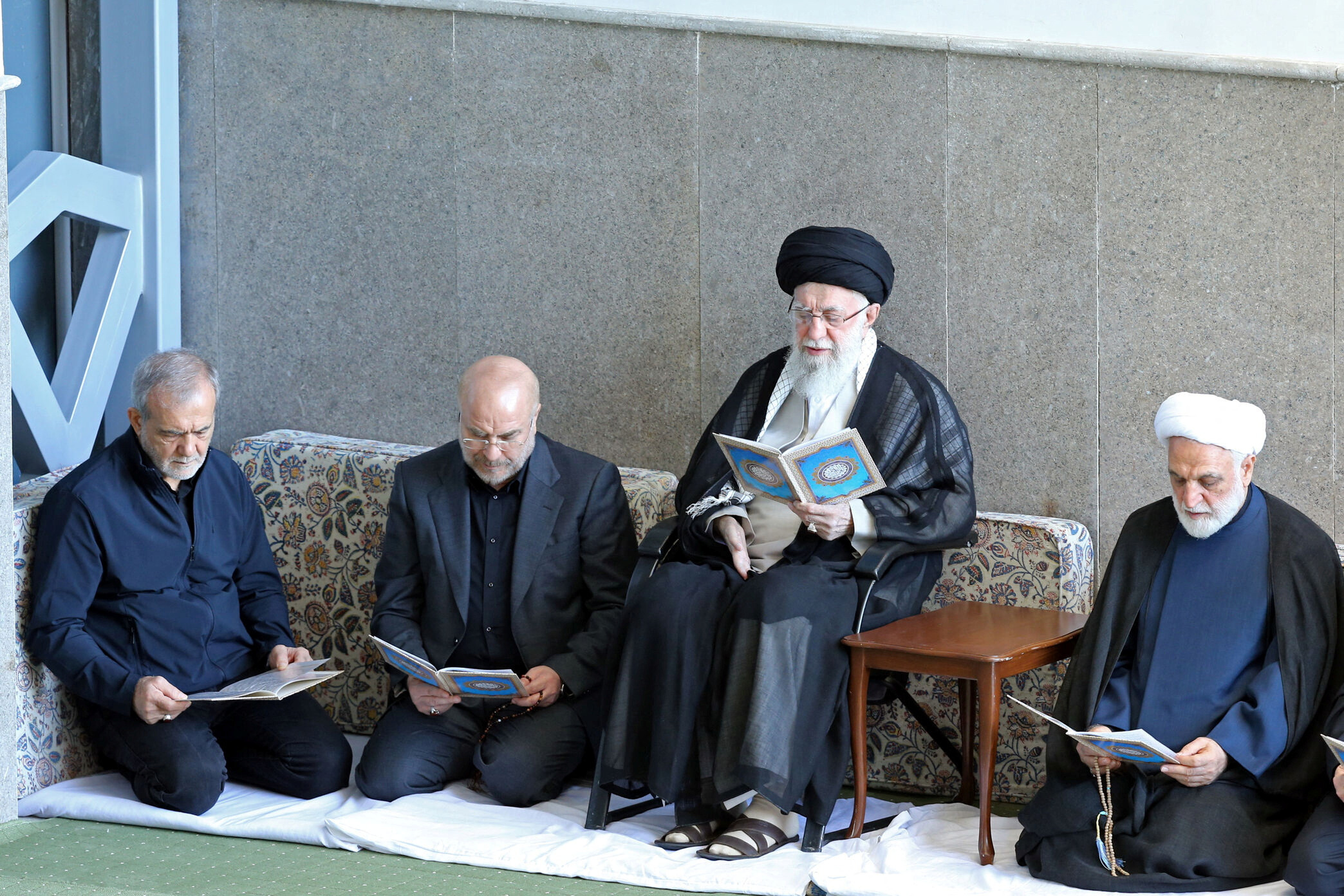
BEIRUT/JERUSALEM: Israel said it had targeted the intelligence headquarters of Hezbollah in Lebanon overnight and was assessing the damage on Friday after a series of strikes on senior figures in the group that Iran’s Supreme Leader dismissed as counterproductive.
The air attack on Beirut, part of a wide assault that has driven more than 1.2 million Lebanese from their homes, was reported to have targeted the potential successor to the leader of Hezbollah assassinated by Israel a week ago.
Hashem Safieddine’s fate was unclear and neither Israel nor Hezbollah have offered any comment.
Iranian leader Ayatollah Ali Khamenei told a huge crowd in Tehran that Iran and its regional allies would not back down, two days after Tehran raised the stakes when it fired missiles at Israel, which sent ground forces into Lebanon this week.
The Israeli military has said its ground operations are “localized” in villages near the border, but it has not specified how far into Lebanon its ground forces would advance or how long the operation is expected to last.
Iran’s missile salvo was partly in retaliation for Israel’s killing of Hezbollah secretary-general Sayyed Hassan Nasrallah, a dominant figure who had turned the group into a powerful armed and political force with reach across the Middle East.
Israel has vowed to respond and oil prices have risen on the possibility of an attack on Iran’s oil facilities as Israel pursues its goals of pushing back Hezbollah militants in Lebanon and eliminating their Hamas allies in Gaza.
“The resistance in the region will not back down even with the killing of its leaders,” Khamenei said in a rare appearance leading Friday prayers in Tehran, mentioning Nasrallah in his speech and calling Iran’s attack on Israel legal and legitimate.
Iran will not “procrastinate nor act hastily to carry out its duty” in confronting Israel, he said, without issuing a direct new threat to Israel or the United States but grasping the barrel of a rifle that stood to his left.
The semi-official Iranian news agency SNN quoted Revolutionary Guards deputy commander Ali Fadavi as saying on Friday that if Israel attacks, Tehran would in turn target Israeli energy and gas installations.
Axios reporter Barak Ravid cited three Israeli officials as saying that Hezbollah official Safieddine, rumoured to be Nasrallah’s successor, had been targeted in an underground bunker in Beirut overnight but that his fate was not clear.
Israeli Lieutenant Colonel Nadav Shoshani said on Friday afternoon the military was still assessing the damage caused by airstrikes in southern Beirut on Thursday night, which he said targeted Hezbollah’s intelligence headquarters.
Earlier the Israeli military reported that it had killed the head of Hezbollah’s communication networks, Mohammad Rashid Sakafi. It declined to comment on the report that Safieddine was targeted.
Hezbollah made no comment on the fate of Sakafi or Safieddine, whose brother Sayyed Abdallah Safieddine – Hezbollah’s representative to Iran – attended Khamenei’s speech in Tehran.
Khamenei said assassinations would just spur more attacks.
“Every strike launched by any group against Israel is a service to the region and to all humanity,” he said.
FLATTENED BEIRUT BUILDINGS
In Hezbollah’s stronghold in Beirut’s southern suburbs, many buildings have been reduced to rubble by a week of intensive strikes on the area. Along a main market street, known as Moawad Souk, nearly all the storefronts had been damaged and the street was filled with broken glass.

“We’re alive but don’t know for how long,” said Nouhad Chaib, a 40-year-old man already displaced from the south.
Israeli strikes have increasingly targeted medical facilities and aid workers. A strike late on Wednesday hit a building in central Beirut used by Hezbollah-affiliated rescue workers, killing nine, the Lebanese health ministry said.
On Friday, an Israeli strike on Beirut’s southern suburbs killed a rescuer from the same unit and another on the southern Lebanese town of Marjayoun hit near its main hospital. Medical staff have decided to temporarily evacuate, the hospital director Mounes Klakesh told Reuters.
Israel accuses the militants of hiding among civilians, which Hezbollah denies.
Iran’s Foreign Minister Abbas Araqchi, visiting Beirut, said his presence in the city on Friday “in these difficult circumstances” was the best evidence that Iran stood by Lebanon and Hezbollah.
He met with top Lebanese officials, including caretaker Prime Minister Najib Mikati and speaker of parliament Nabih Berri – a Hezbollah ally.
Araqchi said Tehran supported efforts for a ceasefire in Lebanon on the condition it would be backed by Hezbollah and simultaneous with a ceasefire in the Gaza Strip.
A Hamas attack on southern Israel last Oct. 7 stunned the nation and triggered its war against the group. Iran’s allies in its “Axis of Resistance”– Hezbollah, Yemen’s Houthis and armed groups in Iraq — have carried out attacks in the region in support of the Palestinians in Gaza. Khamenei said Afghanistan should join the “defence”.

0 Comments